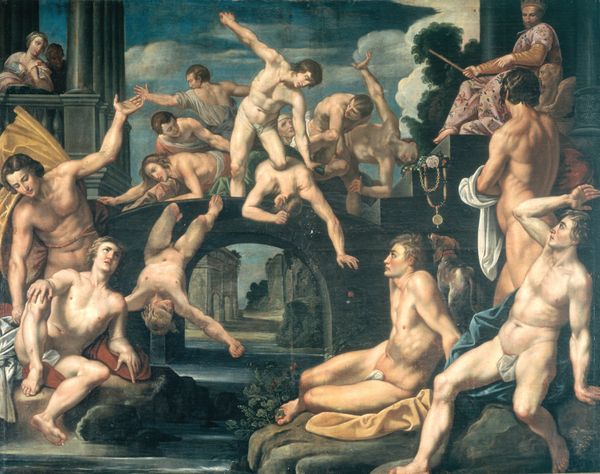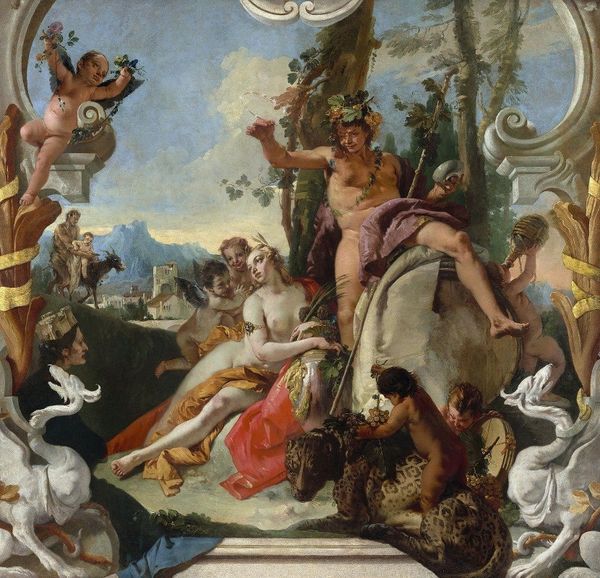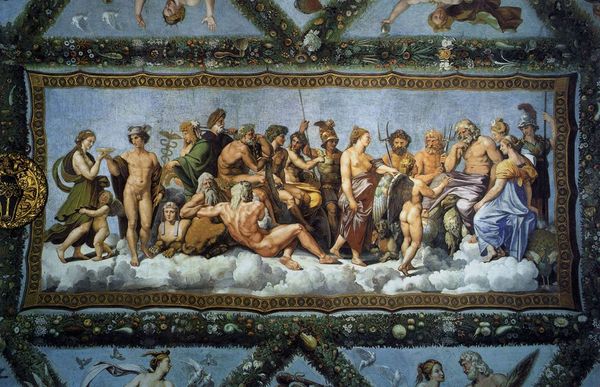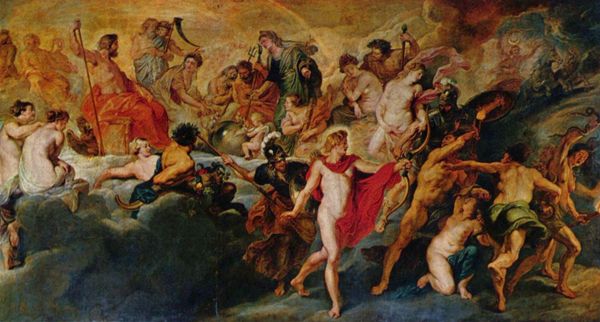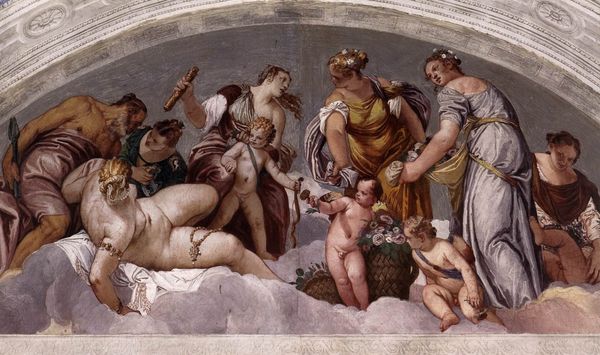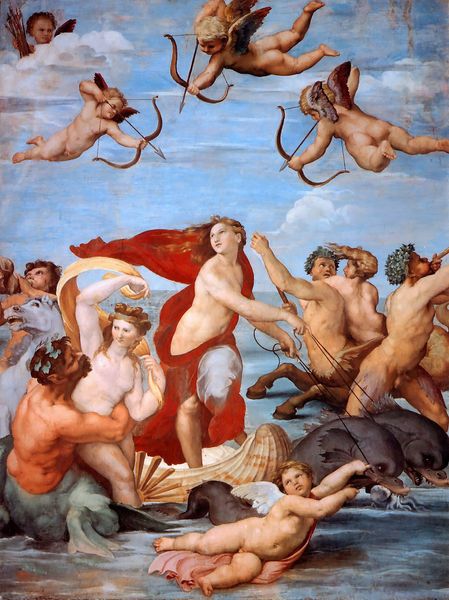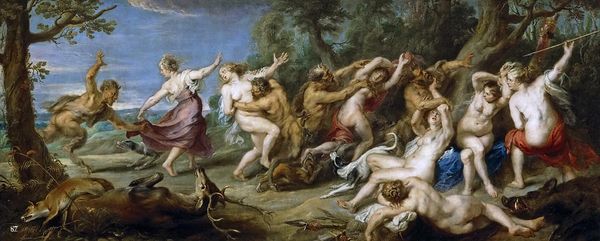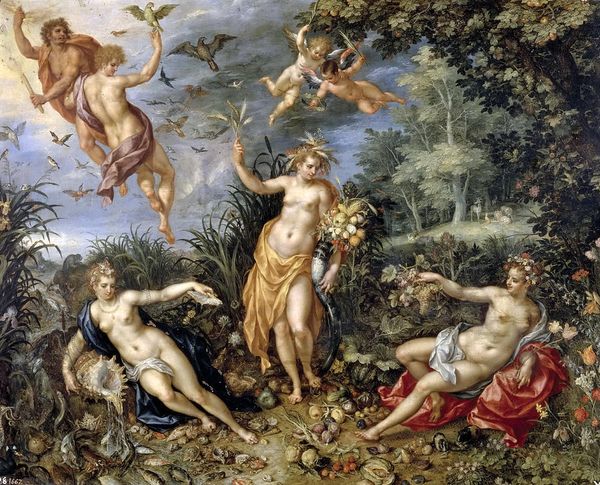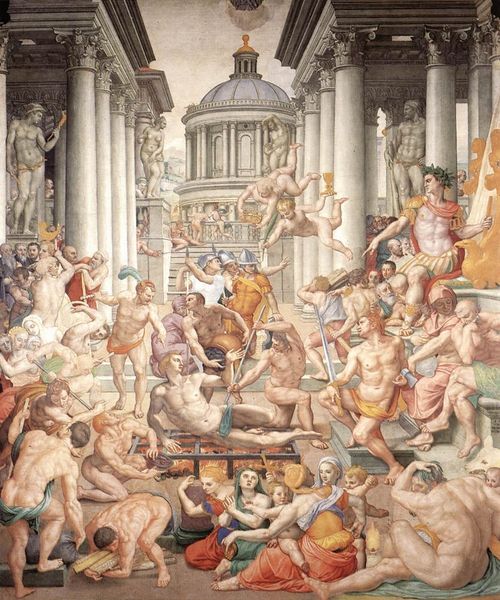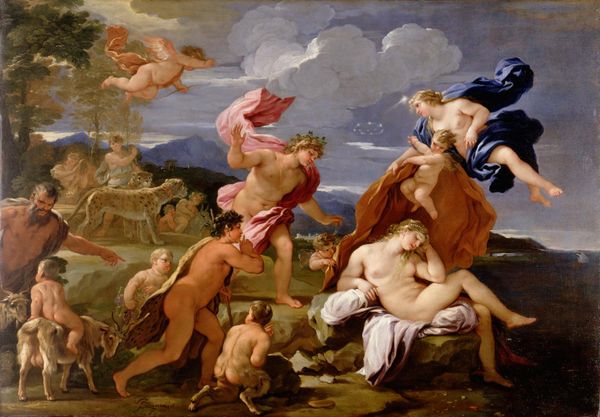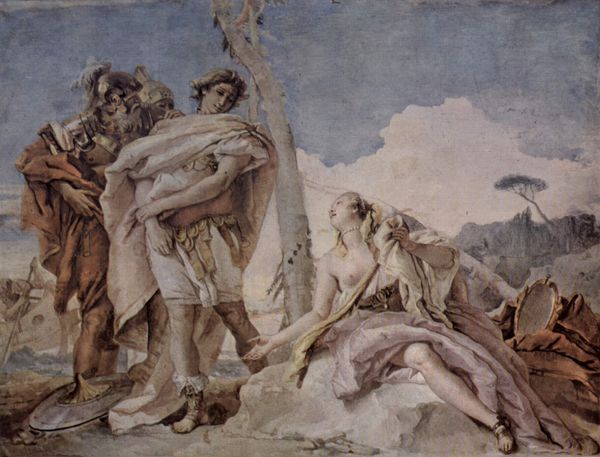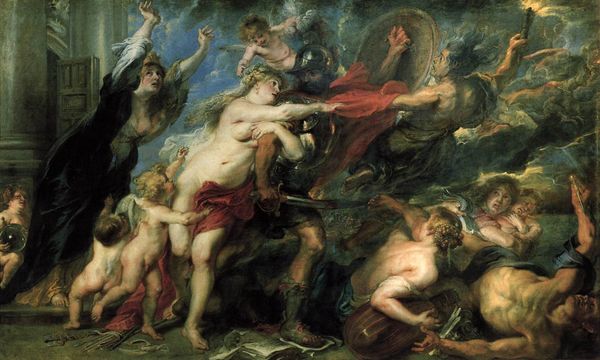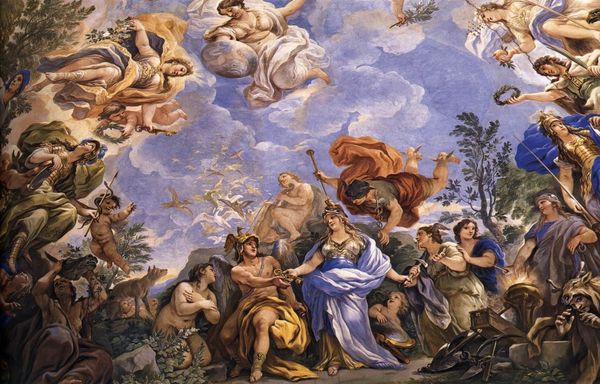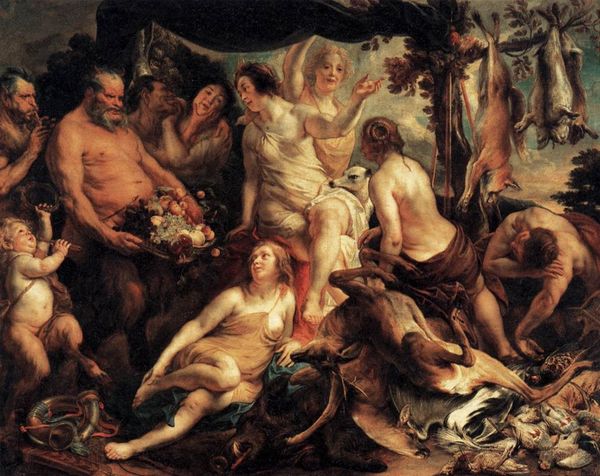
painting, plein-air, oil-paint, fresco
#
portrait
#
allegory
#
baroque
#
painting
#
plein-air
#
oil-paint
#
landscape
#
mannerism
#
figuration
#
fresco
#
romanesque
#
oil painting
#
roman-mythology
#
mythology
#
history-painting
#
italian-renaissance
Copyright: Public domain
Annibale Carracci, a leading figure of the Bolognese School, created this scene of revelry and mythological union in fresco. Painted at a time of strict religious reform, its celebration of earthly pleasures and classical themes offers a fascinating glimpse into the era's cultural tensions. Carracci reimagines the classical world with a distinct Italian accent. Bacchus, the god of wine, and Ariadne, the mortal princess, are united in a joyous procession, surrounded by a retinue of satyrs and nymphs. Observe how Carracci delicately balances the portrayal of sensual delight with the artistic conventions of the time. The fresco complicates traditional representations of gender. Ariadne, often depicted as a passive figure, is here an active participant in the bacchanal. Yet, we can also consider how the male gaze still dominates. Ultimately, "The Triumph of Bacchus and Ariadne" serves as a reflection of the desires and anxieties of its time. It invites us to consider how identities are performed and negotiated within a canvas of myth, power, and representation.
Comments
No comments
Be the first to comment and join the conversation on the ultimate creative platform.
